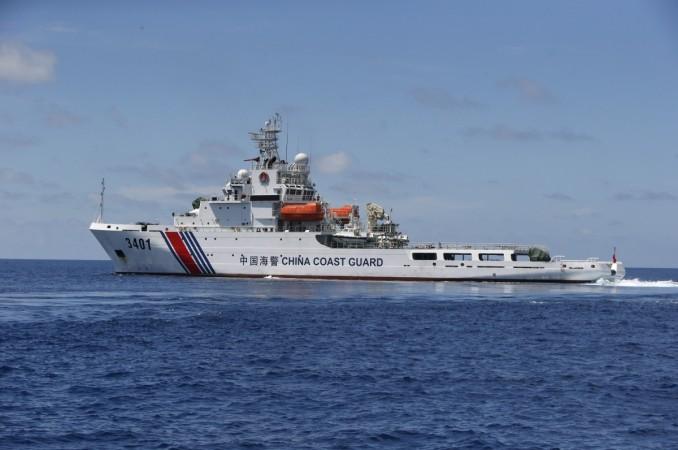
China on Thursday called out the U.S. for taking sides in the South China Sea conflict despite saying it would not. A senior Chinese diplomat said the U.S. should not decide policy related to the disputed area based on its allies, such as the Philippines, Vietnam, Malaysia, Taiwan and Brunei, who have also laid claim to the region.
The statement comes days before the 15th Asia Security Summit, which is due on Friday in Singapore. China is of the view that it has the right to protect its sovereignty and maritime rights in the South China Sea, an area from where cargo worth $5 trillion passes every year.
"In fact the United States is not a claimant in the South China Sea dispute, and it has said it takes no position on territorial disputes...So we hope the U.S. can stick to its promises and not choose sides, but can set its position based on the rights and wrongs of the case rather than whether somebody is an ally," Chinese Vice-Foreign Minister Zheng Zeguang was quoted as saying by Reuters.
"I think if they can do this, and if they can stop provocative acts targeted at China's sovereignty and security interests, then the U.S. can play a constructive role in maintaining peace and stability in the South China Sea and promote a lowering of the temperature on this issue," he added.
Zeguang also said the South China Sea dispute would be discussed with U.S. State Secretary John Kerry during the three-day summit. The issue was also taken up by world leaders during the G7 Summit in Japan last month. The dispute over territorial claims has loomed large ever since the U.S. started conducting patrols in 2015.
The U.S. has defended its patrols close to the islands claimed by China as protection of "freedom of navigation" exercises.
China had urged the U.S. to put an end to its surveillance after western nation called Chinese interception of one of its aircrafts as "unsafe."

















